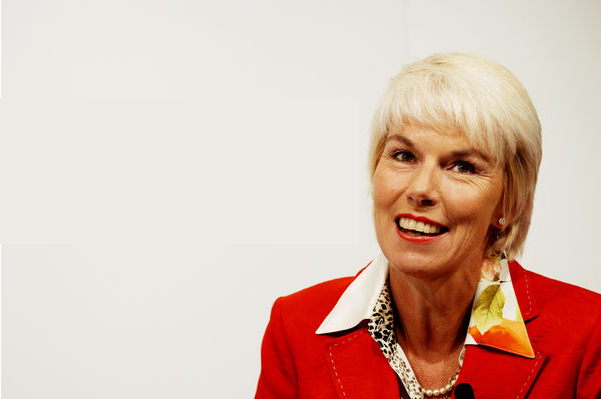Gail Kelly is a South African-born Australian businesswomen and CEO of Westpac Australia, until she announced her retirement on November 13, 2014. As of 2014, she is listed as the 56th most powerful woman in the world by Forbes. Last August, Kelly spoke at the St George Bank Foundation launch about the seven lessons she’s learnt along the way.
1. Choose to be positive
You should actively choose to be positive, to see the world through a glass-half-full perspective. You should choose, even in difficult times, to look for the learning, the insights, the opportunities, the next steps.
And it’s a life skill, not just a business skill. I sometimes have to remind myself as I am going home at night and have had a really tough day that I can choose how I walk into my home. I can choose to be warm and embracing and welcoming.
2. Do what you love, love what you do
If you love what you do, you’ll do more of it; doing more of it, you’ll gather more confidence, more energy and get better at it. That builds more confidence and energy and you love it more. And you grow in your capability and skills. And the reverse is true.
3. Be bold, dig deep
Put your hand up and be bold and be courageous. Be prepared to back yourself, be prepared to have a go.
It’s been trouble for me all my life, the sense of “Gosh, I’m not good enough, I’m not adequate, I’m not going to do this well. I might fail, what happens if I fail?”
Every time I’ve met this career opportunity in a life sense, I’ve had to pause, stop, dig deep, take my courage in my hands, actively say “I’m going to back myself”, actively say “there are others out there who are going to support me, there are others out there that want me to win”.
4. Right people on the bus, wrong people off
It’s become obvious to me [to ask] “Are the right people in the right roles?” [This is] the single most important factor for leadership success and for organisational success. I’m not alone in evidencing this comment and some of you will have read Good to Great, by Jim Collins.
What he does over five years is research 1500 companies who are deemed to be good companies and he looks at what is it that distinguishes those that are good from those that become truly great. And he comes to the conclusion, which was a surprise to him and the researchers at the time, that the single most important ingredient was what he called having the right people on the bus and the wrong people off the bus.
It’s both sides of the equation that you need to work on.
5. The vision thing
It is important to be able to communicate in a crystal clear way the vision and purpose of the organisation. This is how banks lost their way going into the [global financial crisis]. What [was important] for them was shareholder value, being successful in financial terms, [but they] lost sense of the why: what is the purpose of the bank, in society; why do we exist?
At Westpac, our vision is to be one of the most respected companies in the world: helping our people, our customers, our communities to prosper and grow. The communication of this is key.
6. Generosity of spirit
If you believe in practising generosity of spirit, at heart you believe in the power of an individual to make a difference and at heart you treat individuals with deep respect and want to see others flourish.
The people who do not practise generosity of spirit are selfish. People who do not practise generosity of spirit are binary: black or white, right or wrong; they are quick to judge, intolerant, they shoot messengers, they take credit for work that others do.
7. Live a whole life
I very often come across people who are at the pinnacle of their career, they are immensely successful, they’ve climbed the mountain, they are the best they can be in their job or their profession and yet they are deeply unhappy.
If you get to an environment where that gets talked about, these people cry: grown men my age and more, in tears. Because of what they have lost along the way: a relationship, a partnership, they may not be connected to their children, maybe they’ve lost their health, maybe they’ve got no friends. They have no interests, they’ve lost sight of who they are, their spirituality, their inner person.
Do not let this happen to you. You need to make sure you live a whole life, which means be really clear on the priorities in your life and invest in them all the way.
Source: SMH
This edited extract of Mrs Kelly’s speech was published in a longer form in The Australian Financial Review’s Boss Magazine.
\\



